Horses with big hearts give vets hope
By Jan Dowker
The Surveyor
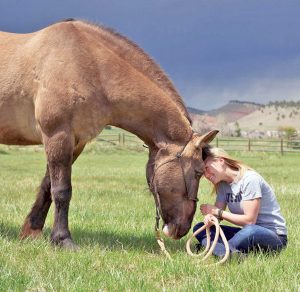
A veteran participating in the Hearts & Horses for Heroes program enjoys a moment with a horse.
Photo courtesy of Hearts and Horses for Heroes Inc.
After fighting in long, drawn-out wars, veterans are coming home to a life they no longer recognize. A dinner out with friends can be as daunting as fighting on the front line for soldiers battling complicated neurological disorders like Post Traumatic Stress Disorder (PTSD) and Traumatic Brain Injury (TBI).
Gulf War veteran Maria Veronica Yzetm lost almost everything before realizing she needed help to get her life back. It turns out some four-legged friends weighing in at a thousand pounds can help these veterans in a way no one else can. As herd animals, horses naturally read body language and can act as mirrors to the way a human being communicates.
Yzetm is in the Hearts and Horses for Heroes program in Loveland. She shared that it’s really hard, but it makes her feel better and she’s regaining her confidence. Working with a horse named Big Mac, she likened his being a wild mustang rescue to herself.
“He was a rescue and so am I,” Yzetm said. “They did a good job pairing with us. Big Mac is stubborn and he mirrors me; it’s really helping.”
The Loveland-based Hearts and Horses organization uses its well-respected Premier Accredited Professional Association of Therapeutic Horsemanship (PATH) Intl. facility to work with wounded service personnel and veterans through its Hearts and Horses for Heroes program.
“Our program uses the horse to help the vet build trust and self-awareness, along with coping skills,” said Jan Pollema, executive director at Hearts and Horses.
Equine-facilitated psychotherapy dates back to World War I, but wasn’t officially recognized in the U.S. until the 1990s with the creation of the Equine Facilitated Mental Health Association.
As defined by Hearts and Horses, their vision for the heroes program is to “help veterans heal and grow by restoring the wisdom of their mind, body and spirit through their interactions with horses, each other, and the natural world.”
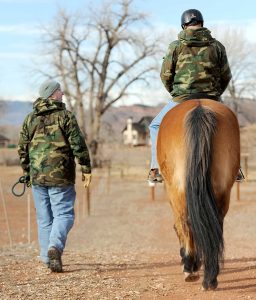
A veteran volunteers to help during the Hearts & Horses for Heroes program event; helping other vets heal with horses.
The eight-week sessions are designed so the mental health professional and the participating veteran review goals and evaluate change and growth in multiple areas.
These areas include goals revolving around: establishing routines and increased motivation; decreasing symptoms of PTSD; developing resources and relating positively to others; including community, spirituality, family and others; working toward goal-directed behavior; building resilience and balance; and an overall appreciation for the beauty in life.
The American Legion Auxiliary (ALA) Unit 67 in Berthoud learned about this program to help veterans and wanted to get involved.
“After learning what it can do, talking with staff, and with Erick (a veteran who was in the program), I just felt we needed to help,” said Laurel Downer, president of the ALA Unit 67.
“After watching the video in which Erick talked about his experience in the heroes program, then talking with him; I cried,” shared Downer. “I just really wanted to help where we could.”
And help the auxiliary did. The ALA Unit 67 raised money at their auction during the Berthoud Veterans Day Dinner and presented a check last month for $1,000 to Hearts and Horses to sponsor a vet in their heroes program.
The PATH International organization’s website notes only five Premier Accredited PATH International centers in Colorado offer veterans’ programs.
“I am proud of the impact that the Hearts and Horses for Heroes program has on the lives of our veterans in our community,” said Pollema.
“The impact of this $1,000 donation is that it will sponsor one vet for a session, and a little bit more.” she said. “I was literally moved to tears the moment I heard how generous the donation check was from the ALA Unit 67. We are so appreciative of Laurel’s leadership and hard work as well as the hard work of the others in the auxiliary to create such a successful fundraiser to benefit the Hearts and Horses for Heroes program.”
The U.S. Department of Defense (DOD) notes that traumatic brain injury is one of the invisible wounds of war, and one of the signature injuries of troops wounded in Afghanistan and Iraq. Blasts are the leading cause of TBI for active duty military personnel in war zones.
PTSD is classified by psychologists as an “anxiety disorder” that can occur after a traumatic event in which you think your or others’ lives are in danger. As of September 2014, there are about 2.7 million American veterans of the Iraq and Afghanistan wars. According to a study by RAND Corporation, as least 20 percent of these veterans have PTSD and/or depression, and the number increases when combined with TBI.
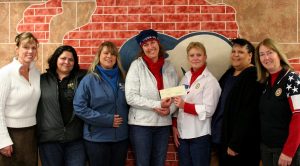
The American Legion Auxiliary Unit 67 in Berthoud presented a check for $1,000 to Hearts & Horses for their Hearts & Horses for Heroes Program. Pictured from L to R, ALA Unit 67 member June Alexander, H&H volunteer Maria Veronica Yzetm, H&H Veterans Outreach Specialist Michele Kane, H&H Exec. Director Jan Pollema, ALA Unit 67 President Laurel Downer, ALA Unit 67 members Gloria Major and Beth Sterck.
Jan Dowker / The Surveyor
“As vets we always had to plan for the next mission,” said Michele Kane, veterans outreach coordinator at Hearts and Horses. “It’s really hard for vets to live in the moment, and the horses make them – force them – to live in the moment. They react immediately to us because they only live in the moment, and that real-time feedback gives the vets the ability to see how their emotions are being projected. They can’t dwell on things that happened in the past and can’t worry about two hours from now or tomorrow.
“With people, there’s an expectation of showing that you’re fine, you’re OK. With the horses, they don’t have any expectation; you can be yourself, and they’re going to care for you regardless,” she said.
An underlying theme that surfaced when talking with veterans in the program was that the horses reminded the veterans of their humanity. Not that they will forget the battles they’ve fought, but the horse, one-on-one with the vet, helps them move on from the battlefield and back to the community in which they now live.
Downer hopes more awareness of this program will build greater community support.
“It allows our vets to forget their troubles for just a little while, and the way Hearts and Horses pairs them with horses allows them to connect with a gentle soul and learn how to work through their difficult times,” she said.
- August, 06 2015

Berthoud man killed in motorcycle acc...
By John Gardner The Surveyor One person is dead and another faces possible charges after...
- August, 09 2018
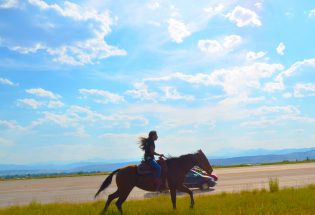
Riders on a 400-mile journey on horse...
Photo by Amber McIver-Traywick - Cousins (L-R) Thomas Belt, 11, and...
- February, 01 2019

My one-year anniversary and what a ye...
By Guest Columnist Chris Kirk The Surveyor On Jan. 22, 2019, my one-year anniversary as...
- February, 23 2018
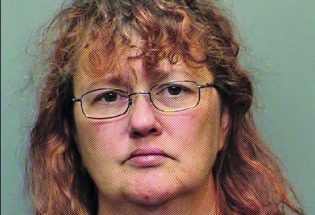
Woman arrested for fatal crash in Ber...
By Amber McIver-Traywick The Surveyor The Larimer County...
- January, 17 2019
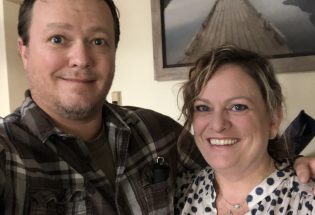
Local federal employees in a holding ...
By Amber McIver- Traywick The Surveyor Thursday, Jan. 17, is day 27 of the partial...
- July, 09 2015
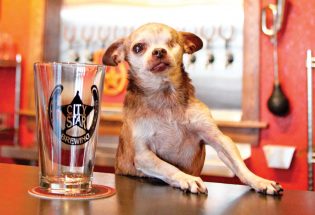
Who let the dogs out? City Star, that...
Hops & Harley event welcomes dogs By Heidi Kerr-Schlaefer The Surveyor ...
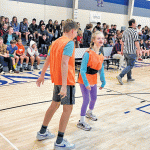
Unified basketball comes to Turner Middle School
Community News
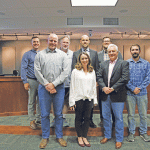
Mike Grace says goodbye as Brett Wing joins town board
Community News
POLICEBLOTTER
Community News
Northern Water sets C-BT quota at 70% for 2024
Community News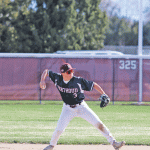

Emotions run high during Revere Property hearing
Community News
Snowpack at 119% above normal
Community News

Karspeck to serve third term as Berthoud mayor
Community News
COMMUNITY CALENDAR:
Community Calendar – add an event
Homestead Fine Art Gallery First Fridays OPEN HOUSE
03 May 4:00 PM - 7:00 PM
Homestead Fine Art Gallery First Fridays OPEN HOUSE
07 Jun 4:00 PM - 7:00 PM
Homestead Fine Art Gallery First Fridays OPEN HOUSE
05 Jul 4:00 PM - 7:00 PM
Homestead Fine Art Gallery First Fridays OPEN HOUSE
02 Aug 4:00 PM - 7:00 PM
Homestead Fine Art Gallery First Fridays OPEN HOUSE
06 Sep 4:00 PM - 7:00 PM
Homestead Fine Art Gallery First Fridays OPEN HOUSE
04 Oct 4:00 PM - 7:00 PM

